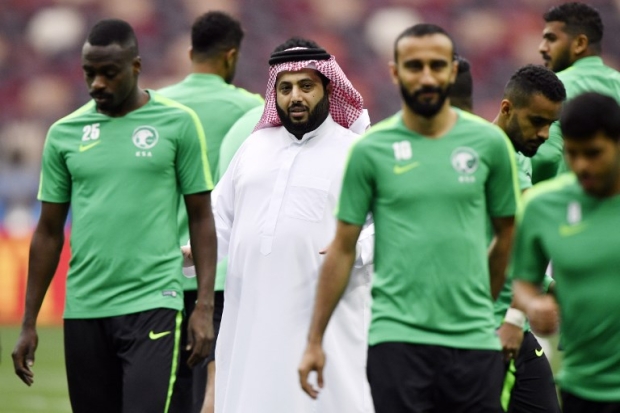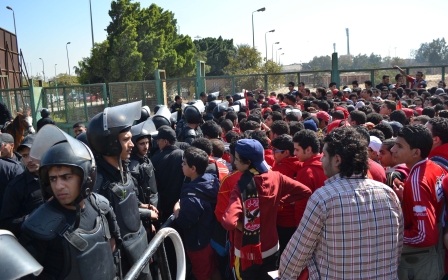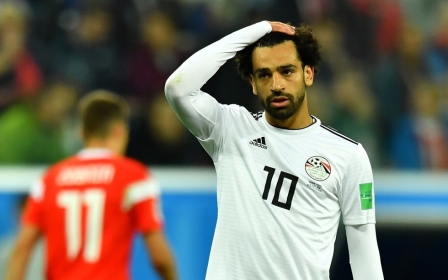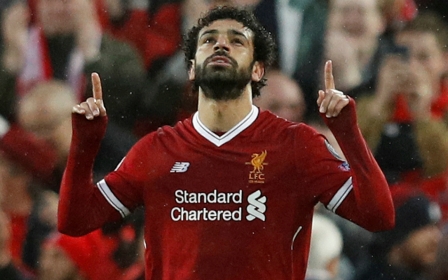Saudi own goal: How buying Egyptian football clubs failed to pay off
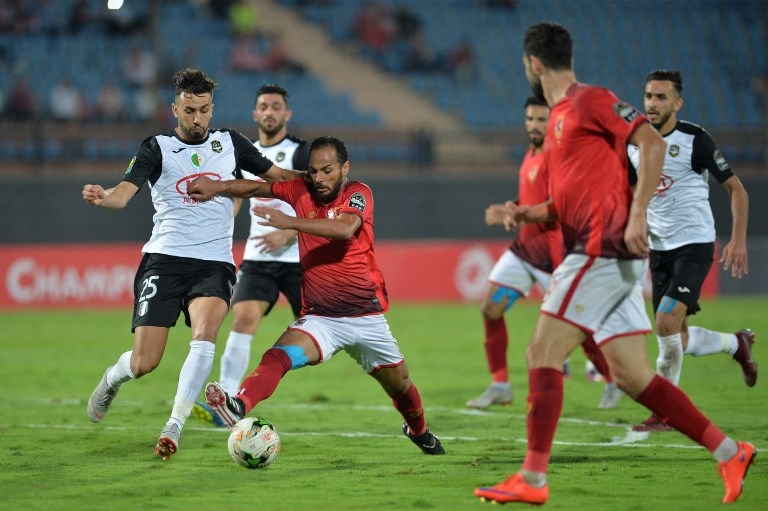
With the recent announcement that the Saudi owner of Pyramids FC, an Egyptian football club based in Cairo, is withdrawing his investment from the club, Turki al-Sheikh’s exit has been just as swift as his entrance. But in a country where football is often an outlet for political dissent, this embarrassing fallout should give pause for thought about the nature of Egypt's close relations with Saudi Arabia.
Al-Sheikh, the chairman of the Saudi General Sports Authority, has been a consistently controversial presence since the start of his involvement in Egyptian football in December. He was appointed as honorary president of al-Ahly, Egypt’s most popular team and the most successful club in Africa, in recognition of his fundraising efforts in support of club chairman Mahmoud al-Khateeb's election campaign.
He is believed to have played a significant role in financing al-Ahly during his five-month spell as honorary president. According to al-Sheikh himself, he spent 260 million Egyptian pounds ($14.5m) before stepping down in May after a disagreement with the club's board.
Weak commercial proposition
The reasons for his involvement in running football clubs in Egypt are open to speculation. Given the suspensions of the Egyptian football league between 2011 and 2013, the slow and staggered return of fans to stadiums, and the sluggish state of Egypt's economy, football clubs in Egypt are far from ideal targets for foreign investment.
Al-Sheikh, believed to be a close confidant of Saudi Crown Prince Mohammed bin Salman, has poured millions into Egyptian football against a backdrop of what the Saudi government calls an anti-corruption drive, which saw more than 200 businessmen, princes and government officials imprisoned at a luxury hotel in Riyadh late last year. Some have since reached financial settlements, handing money or assets back to the Saudi government.
The combination of a weak commercial proposition and the timing make it improbable that al-Sheikh, purportedly a billionaire, would make such a high-profile investment abroad for business reasons.
A return to football grounds for domestic fans in Egypt seems even further away now; as long as fans have a voice, stadiums will fall silent
Football clubs in Egypt, however, could be viewed as returning good value for money in the form of increasing popular appeal and influence in Egyptian society. Support for al-Ahly - launched more than a century ago, largely as a symbol against former British rule - is widespread in Egypt, particularly among the poor and devout of Cairo’s suburbs.
Officials might have thought that in return for even more sporting success, the club's loyal fan base would start to think more favourably of the Egyptian government's alignment with Saudi policies in the region.
During al-Sheikh’s time as honorary president, large vanity projects - completely unviable and unsustainable - were announced, covering everything from improved infrastructure to illustrious foreign managers.
Perhaps the one that stands out most is the announcement that al-Ahly would build a new 60,000-seat stadium to be "among the top 10 stadiums in the world", designed by Populous, the same architecture company behind London's Wembley Stadium. These plans, apparently to be bankrolled by al-Sheikh and other Arab investors, have not been mentioned since al-Sheikh’s departure from the club.
MEE has reached out to al-Sheikh for a comment, but did not receive any response before the piece went to print.
Overhauling the team
Undeterred by his experience at al-Ahly, al-Sheikh in June acquired Alassiouty Sport, a modest team located in the ancient town of Asyut, about 400 kilometres south of Cairo. He decided to relocate the club to the capital and rename it Pyramids FC. He then oversaw an overhaul of the playing staff, recruiting 18 new players, including four players signed from Brazilian clubs for a total of $20m, in addition to some of the best local talent and a new Argentine coach.
Al-Sheikh’s spending is reported to have surpassed $33m on players alone in just over a week of summer transfers. He also installed former al-Ahly coach Hossam el-Badry as the chairman of the club on a reported salary of €2.5 million ($2.8m) a year.
Despite the success of Pyramids FC at the start of the new season, al-Sheikh’s exit from the club should be seen as an unmitigated failure for him personally. A constant acrimonious presence in Egyptian football, accused of "meddling" in refereeing decisions and creating "double standards" in the league, he has neither brought the influence nor gained the popularity he desired. The last straw appeared to be the derogatory chants that al-Ahly fans sung about him at a recent game.
Saudi Arabia has been a key backer of Egyptian President Abdel Fattah al-Sisi’s government since the former general seized power in a coup against Egypt's first democratically elected civilian President Mohamed Morsi in 2013. While it is true that under Sisi’s regime criticism and opposition are stifled and heavily policed, decisions such as ceding to Riyadh sovereignty over the Red Sea islands of Tiran and Sanafir have generated a strong backlash.
Troubling legacy
Ahmed Saad, an Egyptian sports journalist, told Middle East Eye that "if we look at the Saudi backing for the current Egyptian rulers and Egypt’s transfer of two Red Sea islands to Egypt, it is fair to assume that investing in Pyramids [FC] could have a political aspect that only time will show.”
In the end, al-Sheikh’s robust and controversial personality was not the way to deliver soft power or diplomacy. Instead of winning over the hearts and minds of Egyptian football fans, he repeatedly angered them with his comments - often delivered through his social media platforms. One example is a provocative remark he made about hoping Egyptian forward Mohamed Salah would not recover from a shoulder injury in time to face Saudi Arabia in the group stage of the World Cup in Russia.
Perhaps a worrying legacy of al-Sheikh’s involvement with al-Ahly and Pyramids FC is that the Egyptian government will have noted that football fans are still a threat to its authoritarian grip on society. Football fan groups remain one of the few ways that Egyptians can formally or informally convene in large numbers, which has been a concern to the Egyptian state since the Arab Spring uprisings.
Since the expletive-laden chants against al-Sheikh by al-Ahly fans, several have been arrested for membership in an outlawed group, the Ultras, and incitement against the state.
A return to football grounds for domestic fans in Egypt seems even further away now. As long as fans have a voice, stadiums will fall silent.
- Mostafa Mohamed is a freelance Egyptian journalist who has worked as a correspondent for several Arab and international journals and magazines, writing on economics and sports.
The views expressed in this article belong to the author and do not necessarily reflect the editorial policy of Middle East Eye.
Photo: Al-Ahly’s Egyptian forward, Walid Soliman, vies with Setif’s Algerian defender, Miloud Rebiai, during a football match in Cairo on 2 October 2018 (AFP)
New MEE newsletter: Jerusalem Dispatch
Sign up to get the latest insights and analysis on Israel-Palestine, alongside Turkey Unpacked and other MEE newsletters
Middle East Eye delivers independent and unrivalled coverage and analysis of the Middle East, North Africa and beyond. To learn more about republishing this content and the associated fees, please fill out this form. More about MEE can be found here.


